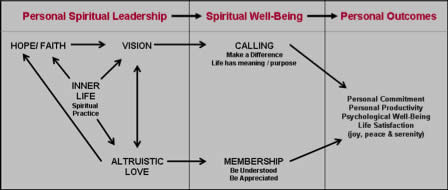Personal leadership is the self-confident ability to crystallize your thinking and establish an exact direction for your life, to commit yourself to moving in that direction and then to take determined action to acquire, accomplish or become whatever you identify as the ultimate goal for your life. Exercising personal leadership demands conscious assumption of control over one’s own destiny through the establishment of a personal mission based on goals that give depth and meaning to every action. Doing what you know is right and productive for you regardless of obstacles or the opinions of others is the essence of personal leadership. To exercise strong personal leadership, people must:
- Recognize and believe in their own untapped potential.
- Develop a strong self-image.
- Be self-motivated through a personal vision through fuels both the desire and the belief that it will be realized.
- Define success in terms of the progressive realization of worthwhile predetermined personal goals.
A key result of personal leadership is a positive self-image that gives one the courage and self-confidence necessary to consciously choose actions that satisfy their needs, to follow that path with perseverance, and accept responsibility for the outcome. However, personal leadership as a process is soulless. It only comes alive and manifests through a person’s vision and personal values. Therefore, both Joseph Stalin (who was responsible for the murder of 20 million of his countrymen in Russia) and Mahatma Gandhi (who was responsible for bringing political freedom to millions in India) had strong and, for them, effective personal leadership.
Most leaders recognize that there is a spiritual element to life. This spiritual element is experienced in the process of living out a set of deeply held personal values while honoring the presence of a Nondual Presence, Being, Higher Power or God greater than ourselves. Their spirituality expresses their desire to find meaning in connection with others and to treat life as an offering of what we do. It acknowledges that every day life is a precious gift and an endowment to become even better; that the purpose of life is much more than the “whoever dies with the most stuff wins” philosophy that underlies today’s consumer society. Indeed, this spiritual element is necessary for the physical, mental, and emotional toughness to endure the difficult periods of life and for the realization that even sad or tragic things serve a purpose, even if we do not understand exactly what that purpose is.
Personal Spiritual Leadership

Personal spiritual leadership as illustrated by the figure above, explicitly recognizes and incorporates this spiritual element into personal leadership. Personal spiritual leadership requires not only the exercise of strong personal leadership but also hope/faith in a transcendent vision and personal values based on altruistic love. The source of personal spiritual leadership springs from an inner life practice based in the spiritual journey and the quest for a Higher Power or God from which one can draw strength and give their unreserved commitment and devotion. By being committed to a vision of service to key stakeholders one has an experience of calling in that one is making a difference in other peoples’ lives and, therefore, life has meaning. In authentically living the values of altruistic love through the care, concern, and appreciation of both one’s self and others, one experiences membership and the sense that he or she is understood and appreciated. The combined experiences of calling and membership are the essence of spiritual well-being, which is the source of the individual outcomes of personal spiritual leadership – personal commitment and productivity, positive human health, psychological well-being, and life satisfaction.
